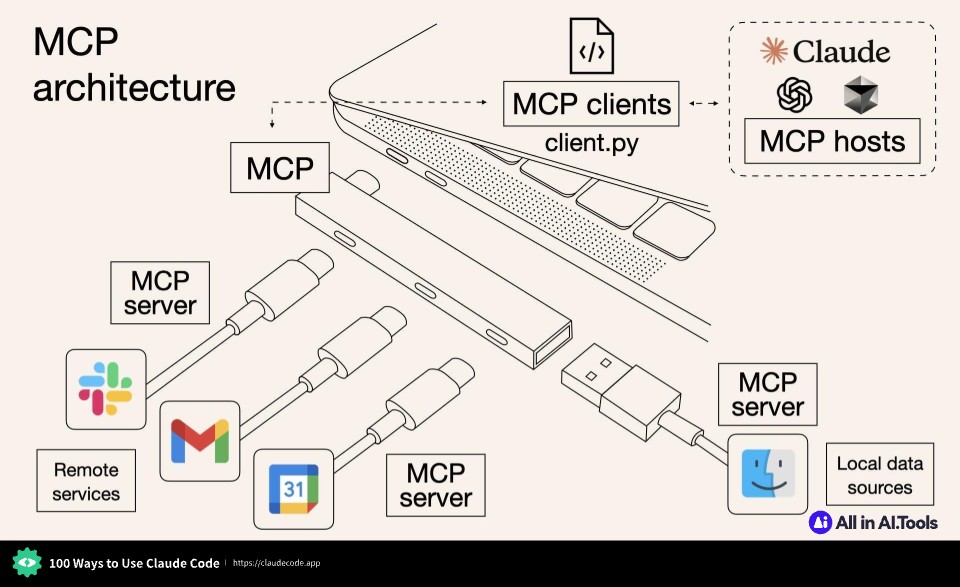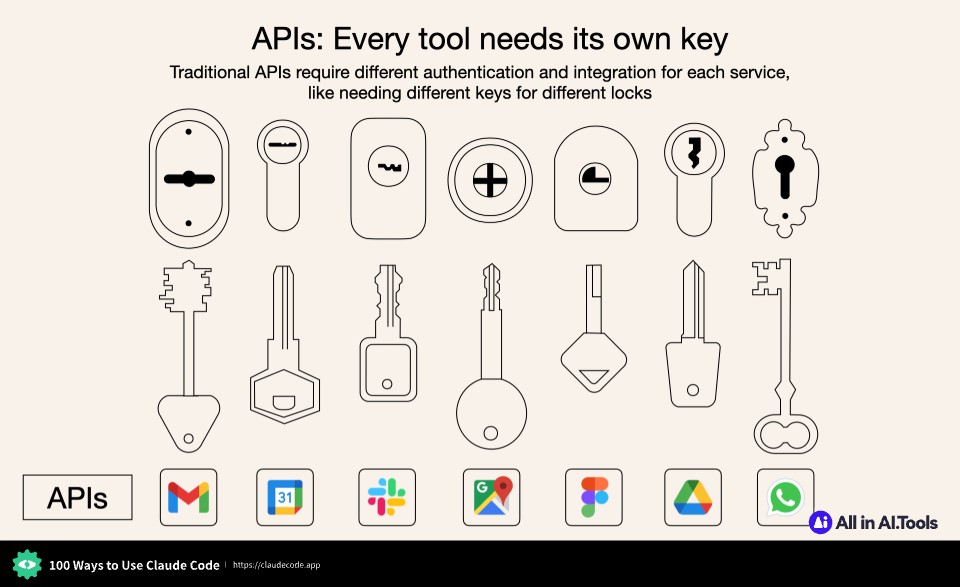Discover and integrate MCP servers to extend Claude's capabilities
Model Context Protocol (MCP) Server for Graphlit Platform
A MCP server implementation for hyperbrowser
⚡️ Open-source AI-powered CLI for web & mobile localization. Bring your own LLM or use Lingo.dev localization engine. Join discord: https://lingo.dev/go/discord
Integration of Needle in modelcontextprotocol
A Model Context Protocol Server connector for Perplexity API, to enable web search without leaving the MCP ecosystem.
Securely run AI-generated code in stateful sandboxes that run forever.
Model Context Protocol (MCP) Server for Langfuse Prompt Management. This server allows you to access and manage your Langfuse prompts through the Model Context Protocol.
Implementation of Model Context Protocol server for Mailgun APIs
A free Model Context Protocol (MCP) server that integrates with Octagon Market Intelligence API
An official Qdrant Model Context Protocol (MCP) server implementation
A simple implementation of an MCP server for the ScreenshotOne API
A Model Context Protocol (MCP) server implementation for GreptimeDB
A model context protocol server to work with JetBrains IDEs: IntelliJ, PyCharm, WebStorm, etc. Also, works with Android Studio
A Model Context Protocol (MCP) server for Kagi search & other tools.
A Model Context Protocol (MCP) server for interacting with Meilisearch through LLM interfaces.
MCP server for interacting with Neon Management API and databases
Model Context Protocol (MCP) supports managing and passing relevant information to models with appropriate context, so they operate properly within a given scope. Using this technology, PayPal developed an MCP server to enable merchants to use natural language with their favorite MCP client to perform business tasks, such as creating or listing invoices.
Tools for seamless integration of different systems and services.
Cloud infrastructure and deployment management tools.
AI-powered tools for creative design workflows across 3D and 2D mediums.
AI-powered tools for product development, design review, and performance monitoring.
Tools for monitoring, analytics, and operational efficiency.


Explore Claude Cowork, Anthropic's groundbreaking AI agent built on Claude Code foundations. Discover how it enables file access, document creation, and task automation for everyone—not just developers. Learn how it integrates with MCP servers and extends Claude Code capabilities.
Explore the major [Claude code](https://claudecode.app) 2.1.1 update featuring 109 CLI improvements, automatic hot reload for skills, sub-agent execution, enhanced security, performance optimizations, and smarter prompt behavior. Learn about all the new features and improvements.
Master the art of prompting Claude with Anthropic official guide. Learn 10 proven strategies to 10x your Claude Opus and Sonnet 4.5 performance. Discover how better prompts lead to better results with practical examples and real-world applications.
Deep dive into sophisticated SSH workflows for Claude Code power users. Learn zero-friction authentication, session management, and advanced techniques that transform your vibe coding experience.
MCP (Model Context Protocol) is an open protocol that standardizes how applications provide context to LLMs. Think of MCP like a USB-C port for AI applications, providing a standardized way to connect AI models to different data sources and tools.
MCP Servers are lightweight programs that expose specific capabilities through the standardized Model Context Protocol. They act as bridges between LLMs like Claude and various data sources or services, allowing secure access to files, databases, APIs, and other resources.
MCP Servers follow a client-server architecture where a host application (like Claude Desktop) connects to multiple servers. Each server provides specific functionality through standardized endpoints and protocols, enabling Claude to access data and perform actions through the standardized protocol.
Yes, MCP Servers are designed with security in mind. They run locally with explicit configuration and permissions, require user approval for actions, and include built-in security features to prevent unauthorized access and ensure data privacy.